Experiencing a miscarriage can be deeply traumatic and emotionally challenging. You might find that the grief and stress and anxiety can be all-consuming and it may make it difficult for you to carry out your day-to-day responsibilities, from work to your social calendar.
Miscarriages aren’t rare—in fact one in four clinically recognized pregnancies reportedly end in loss, per March of Dimes. The true number could be higher, as some miscarriages could happen before someone realizes they’re pregnant. Whether you know someone who has also experienced a miscarriage or not, you might find that you feel like you’re in this alone. .
If you’re not ready to talk, reading may help you sort through what you’re feeling, explain some of what you’re experiencing and bring you some comfort.
Luckily, there’s no shortage of books out there designed specifically to help you cope with a miscarriage or a pregnancy loss. Many of these books offer different perspectives, insights and coping strategies for both individuals and couples navigating the grief of miscarriage. While no book can fully alleviate the pain of loss, these resources can provide comfort, validation, and hope during a challenging time.
What to look for in a book to help you through miscarriage
Getting through a miscarriage can feel like navigating a minefield. Books, especially those written by experts in the field, can help. Here’s what to look for:
- Who wrote the book? If the author is an expert in the field and specializes in maternal mental health, fertility, or miscarriage, that’s a good sign.
- What is the book about? General grief books can be helpful, but you might find more use for a book that’s specifically focused on miscarriage most helpful.
- What’s the theme of the book? If you’re a religious person, a book focused on miscarriage and religion might be best for you. If you start your day journaling, maybe a grief journal is most helpful. Consider how you want to use the book.
The best books to help you through a miscarriage
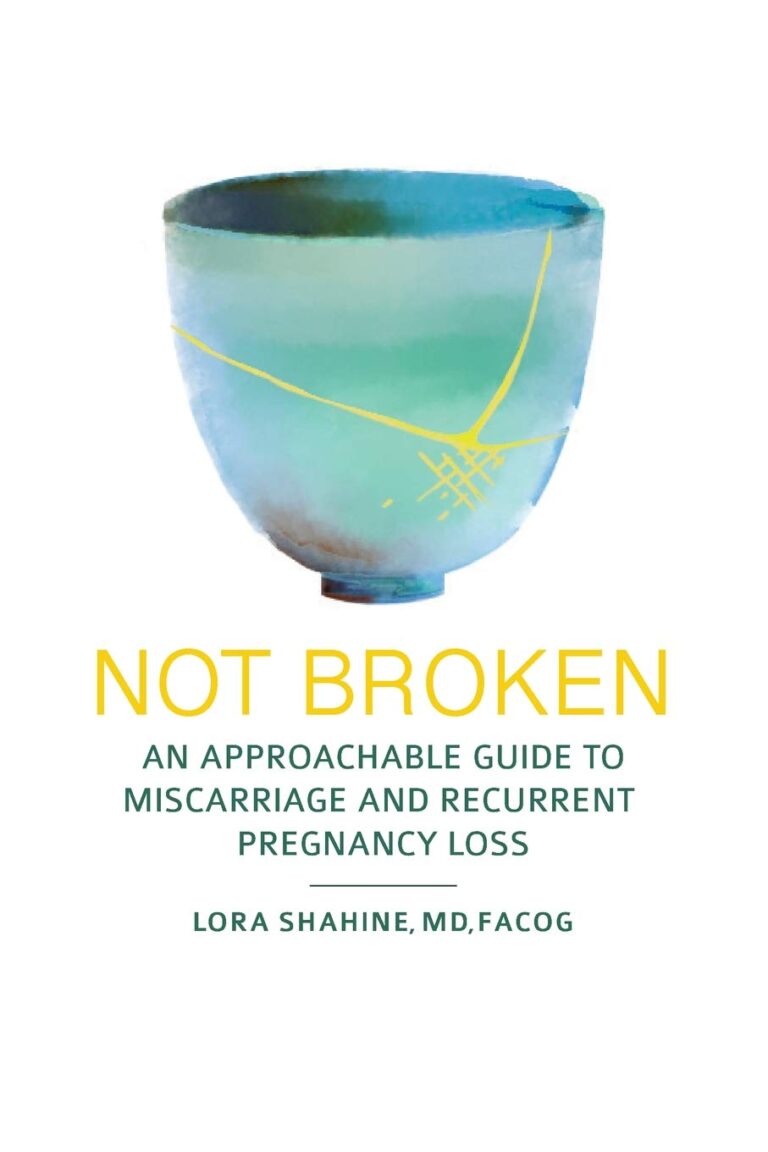
The first time you experience a miscarriage, the effects can be devastating. You might feel confused, overwhelmed, upset, and more. If you experience additional miscarriages moving forward, you may find yourself further confused or even dejected. Dr. Lora Shahine penned this book that focuses specifically on first trimester miscarriages and recurrent pregnancy loss (or multiple losses that happen repeatedly). This book strives to explain miscarriage in an evidence-based way, while also including information on Western medicine and Eastern medicine approaches to treating or preventing miscarriages. Emily Shutt, a certified life coach who focuses on grief coaching, recommends this book for those experiencing miscarriage.
What we love:
- The book is evidence-based
- It’s written by an expert
- It blends Eastern and Western medicine approaches
What we’d change:
- Some reviewers felt the information was too generic and easily found online.
Quick Facts:
- Also available for e-readers
- Only 152 pages
Buy now: Amazon.com, $16.99
The Miscarriage Map: What to Expect When You’re No Longer Expecting by Dr. Sunita Osborn
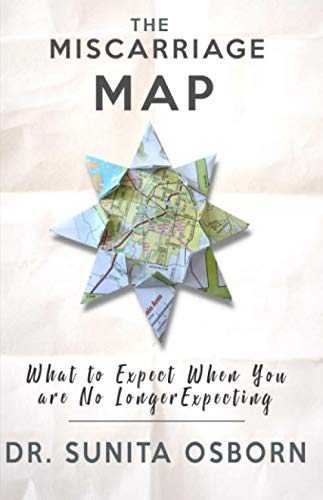
Navigating a miscarriage can be a real challenge for those experiencing them. If you haven’t had one before, you may not know what to do, what to say, or how to move forward. This book, written by Dr. Sunita Osborn, attempts to give you instructions to follow, allowing it to be okay that you don’t know what to do and not making you flounder or figure it all out for yourself.
What we love:
- Dr. Osborn uses her personal experience with miscarriage to inform her writing
- It’s written by an expert
- It’s backed by Dr. Osborn’s clinical experience and expertise
What we’d change:
- One reviewer felt it wasn’t very hopeful.
Quick Facts:
- Available on Kindle
- Only 147 pages
- Independently published
Buy now: Amazon.com, $17
I Had a Miscarriage: A Memoir, a Movement by Jessica Zucker
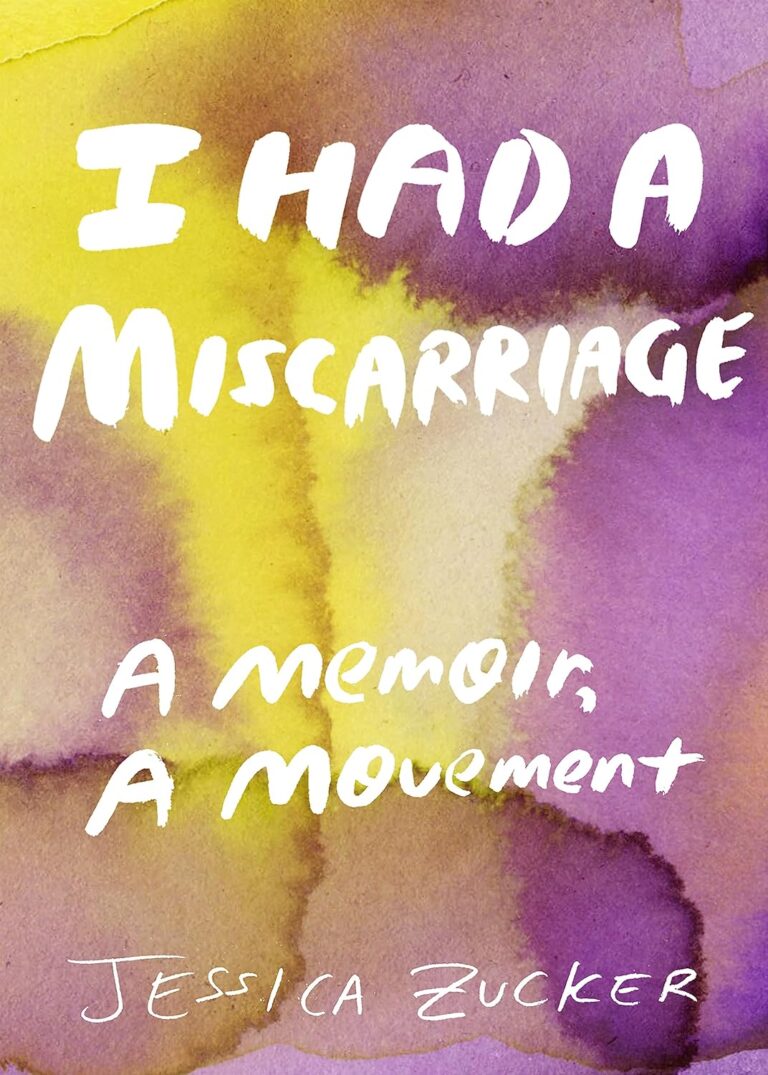
Many miscarriages happen when the person experiencing them is at home. That’s what happened to psychologist Jessica Zucker, who miscarried 16 weeks into her second pregnancy. Even before miscarrying herself, Zucker focused on reproductive and maternal mental health. Zucker created the #IHadAMiscarriage campaign and continues to be vocal about pregnant people’s experiences with miscarriage.
What we love:
- Zucker speaks from both a personal and professional point of view
- Zucker includes insight and stories from others who have experienced miscarriage
- The book tries to destigmatize the experience of miscarriage
What we’d change:
- While this book helped many readers feel less alone in their experiences, one reviewer felt that they couldn’t relate to Zucker’s experience or response.
Quick Facts:
- Available for e-readers
- 240 pages
Buy now: Amazon.com, $19
Miscarriage Grief Journal: 60 Prompts for Reflection and Navigating the Loss of a Baby by Cindi Glow
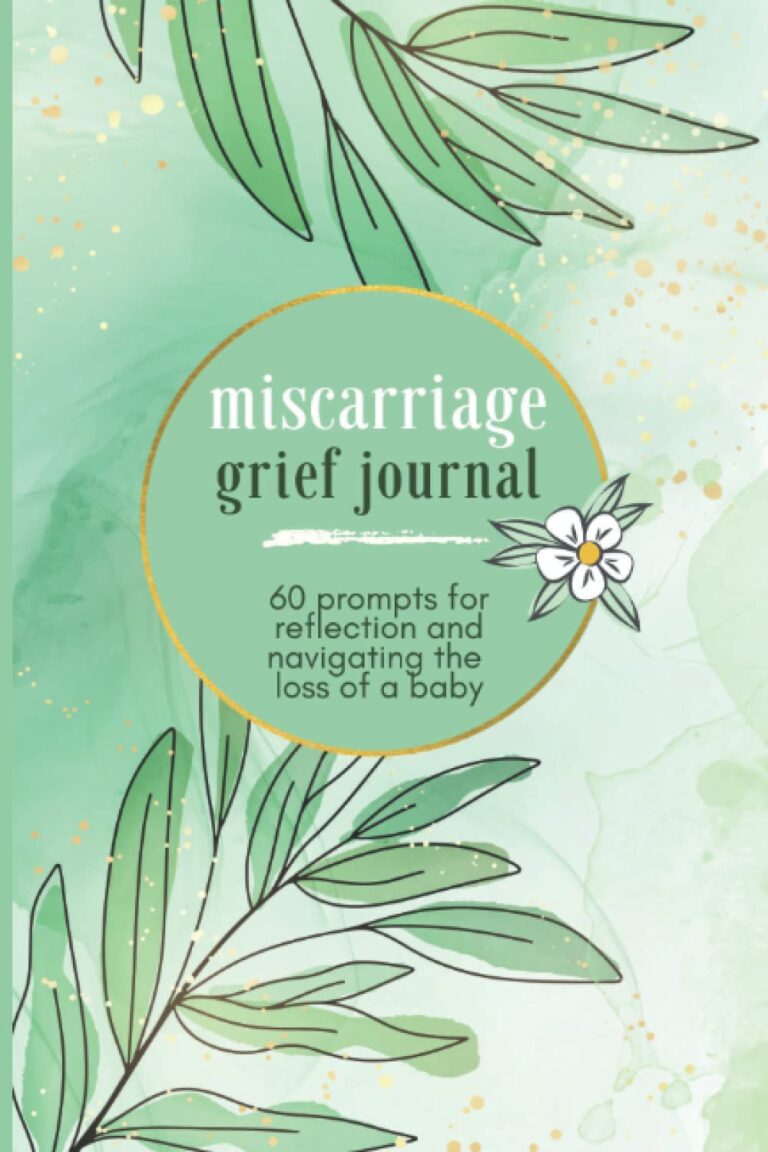
Rather than a more traditional book explaining miscarriage or sharing stories of others who have experienced miscarriage, this book is an interactive grief journal. Some people find that journaling can help them work through difficult situations or emotions and process how they’re feeling. This journal is geared specifically toward those experiencing miscarriage, allowing you to navigate that particularly difficult period without feeling totally alone in your emotions.
What we love:
- It’s interactive, with prompts to help guide your reflection.
- It’s written with miscarriage in mind, rather than a more general grief journal.
What we’d change:
- It’s not written by a credentialed expert in the field.
Quick Facts:
- 108 pages
- Independently published
Buy now: Amazon.com, $10
Unexpecting: Real Talk on Pregnancy Loss by Rachel Lewis
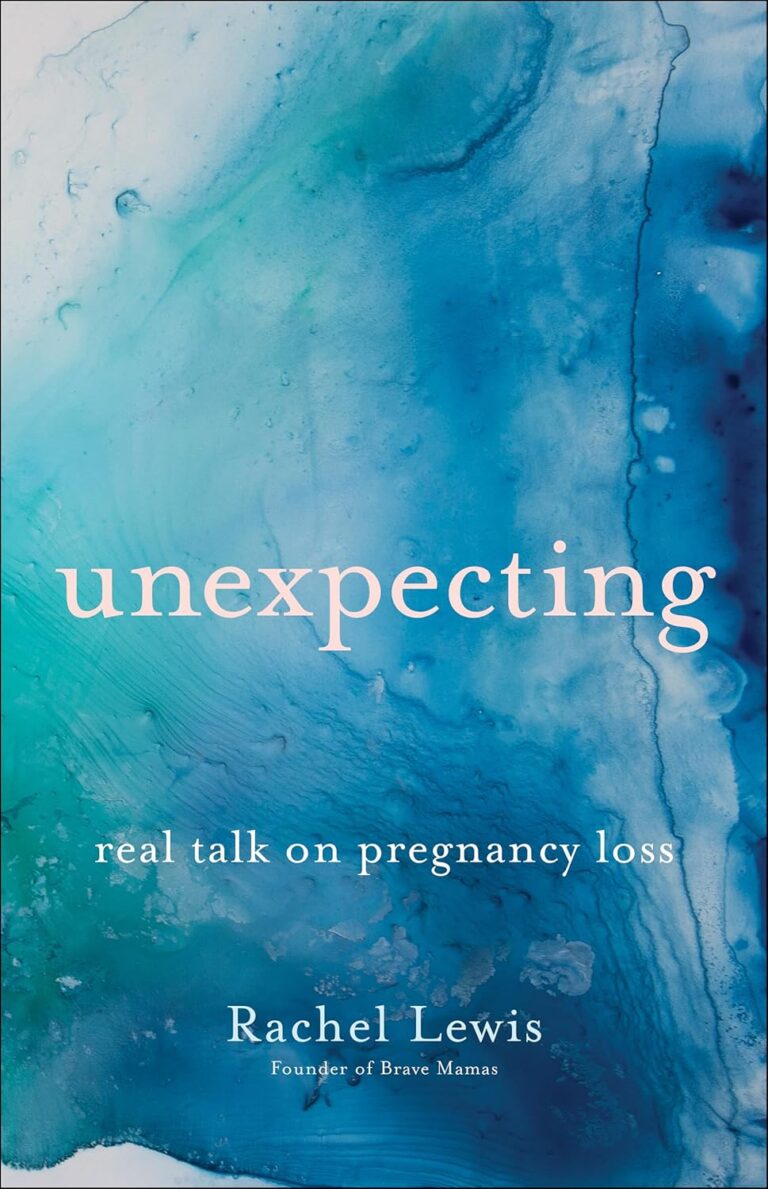
Another recommendation from Shutt, this book is written by someone who has experienced pregnancy loss themselves. Author Rachel Lewis is also the founder of Brave Mamas, an online community for bereaved parents looking to connect with one another. This book does discuss faith in light of pregnancy loss, so if that’s not something with which you’re comfortable, it may not be the book for you.
What we love:
- It’s written by someone who has experienced loss herself.
- It discusses topics like how to cope with a postpartum body when you didn’t bring your baby home, and other subjects that can be hard for those who haven’t experienced them to understand.
- This book discusses many forms of loss.
What we’d change:
- One reviewer felt that it read more as an advertisement for Brave Mamas than a book intended to help on its own.
Quick Facts:
- 272 pages
- Available on Kindle
Buy now: Amazon.com, $11
About What Was Lost: Twenty Writers on Miscarriage, Healing, and Hope by Jessica Berger Gross
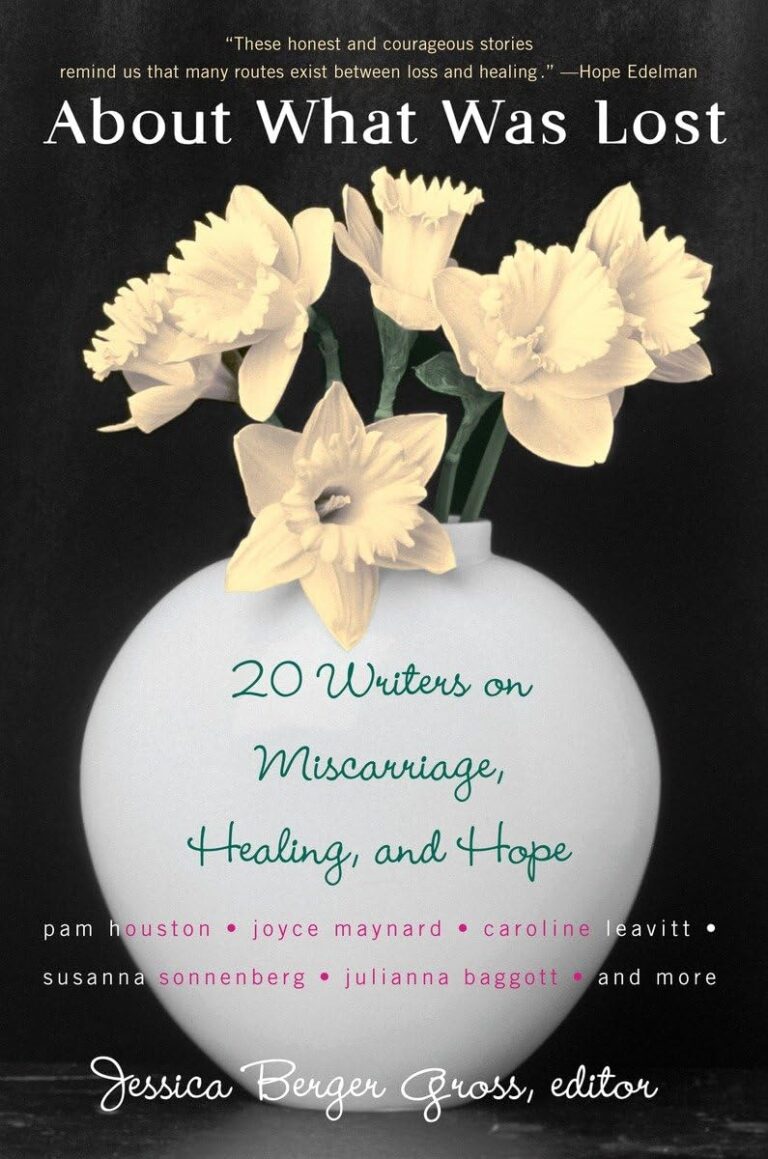
“I like anthologies because they provide a wide range of perspectives/experiences so readers are more likely to come across something that hits home for them,” Shutt said. This anthology contains 20 separate pieces all on the topic of miscarriage or related themes. While it’s not the kind of book that explains the experience or gives advice, necessarily, as Shutt noted, you may find that you can connect to some of these writers’ experiences, even if they’re not all reflective of your personal experience.
What we love:
- It’s an anthology with many perspectives.
- It discusses other kinds of loss beyond early pregnancy miscarriage.
- Reviewers say it helped them feel less alone in their grief.
What we’d change:
- Some reviewers were upset by some of the topics discussed in various essays (from easily conceived pregnancies to abortion to miscarriage vs stillbirth, and beyond).
Quick Facts:
- 266 pages
- Available on Kindle
Buy now: Amazon.com, $24
Whole: Navigating the Trauma of Pregnancy Loss by Heather Dolson, R.N.
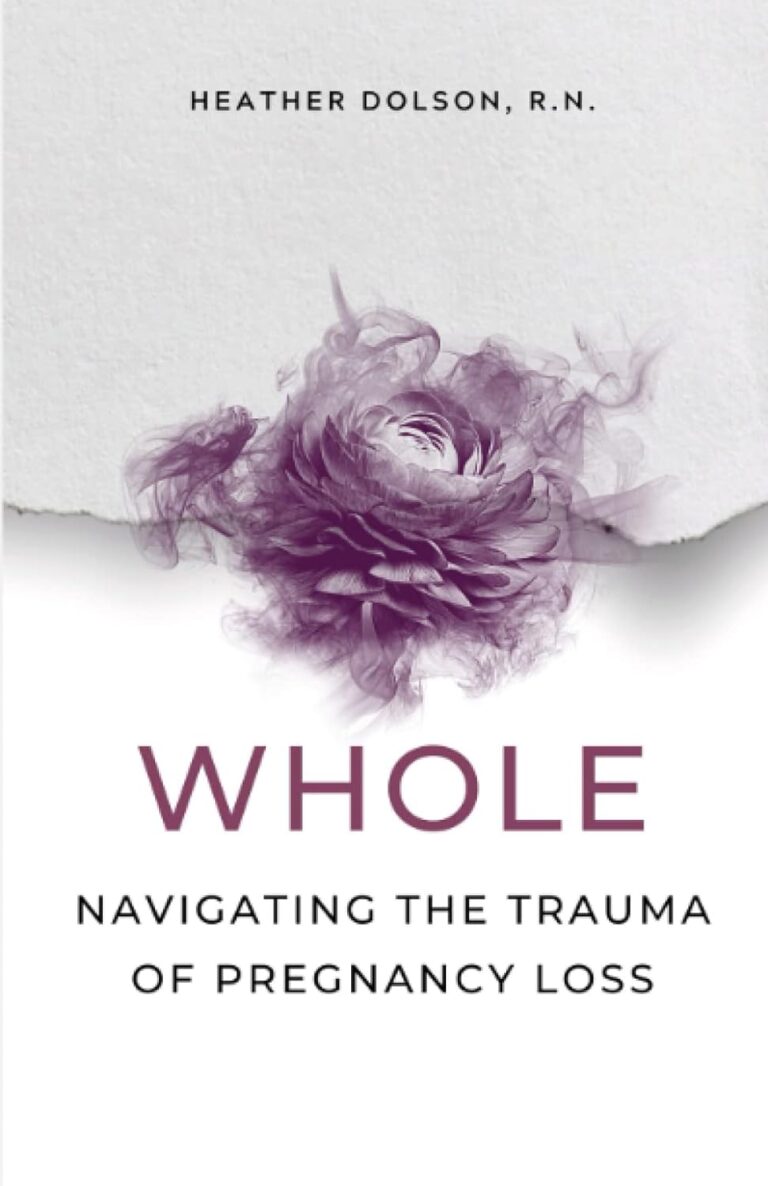
Written by a registered nurse, this book focuses on the trauma that can result when you experience pregnancy loss. Beyond tips on how to navigate your physical and emotional state, this book also covers how to handle interpersonal relationships and the like, which can be affected by the trauma you’ve experienced. Like some of the other books on this list, this book covers loss in all stages of pregnancy, hoping to help as many parents as possible.
What we love:
- It covers loss in all stages of pregnancy.
- It’s written by an expert.
- Reviewers recommend it to those who love people who’ve experienced loss as well.
What we’d change:
- Because it covers all stages of pregnancy, some readers might have a hard time relating to certain portions of it.
Quick Facts:
- 216 pages
- Available on Audible
Buy now: Amazon.com, $17
Your Guide to Miscarriage and Pregnancy Loss: Hope and Healing When You’re No Longer Expecting by Kate White. M.D.
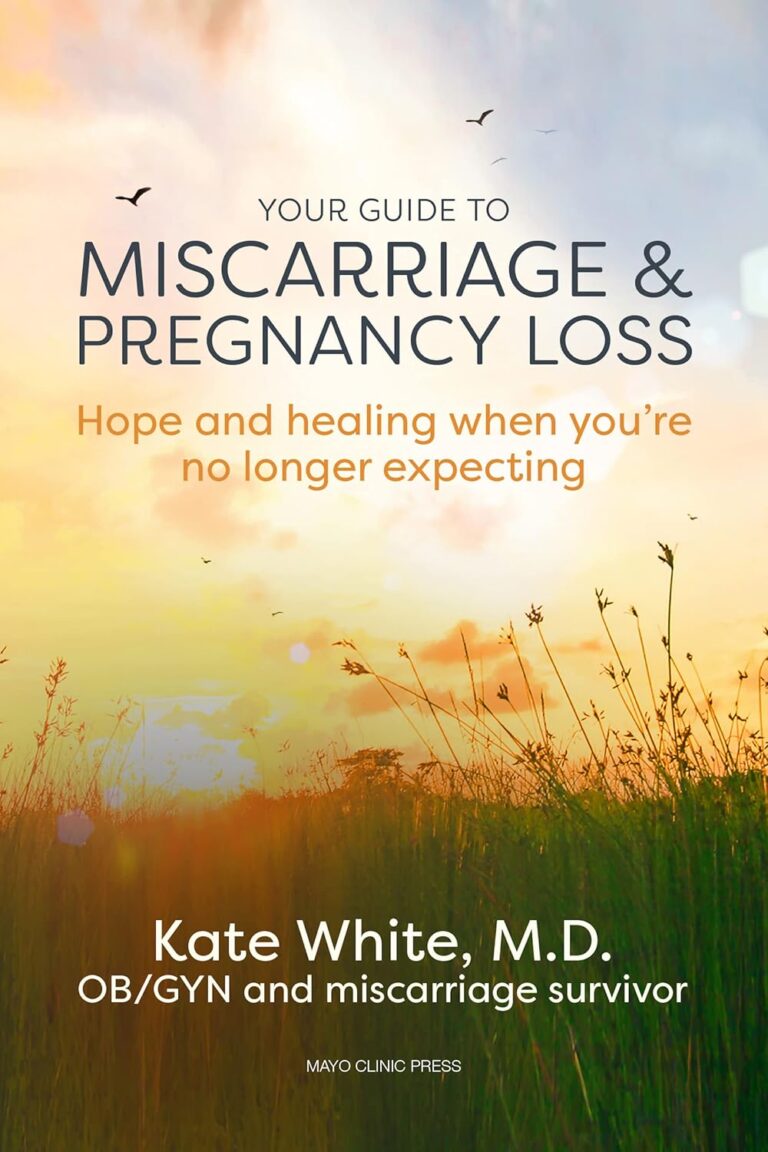
Penned by an OB/GYN who has experienced miscarriage herself, this book draws from both personal and professional expertise. While many books on miscarriage and pregnancy loss don’t cover loss from ectopic and molar pregnancies and other loss, this book does, helping bereaved parents of all kinds.
What we love:
- Molar and ectopic pregnancy loss is included.
- White mixes facts and statistics with comfort.
- It’s written by an expert in the field.
What we’d change:
- One reviewer felt the book was too focused on the medical parts of miscarriage and not enough about dealing with the loss.
Quick Facts:
- 384 pages
- Available on Kindle and Audible
Buy now: Amazon.com, $16
One Last Thing: FAQ
What if these books don’t help?
It’s important to know that if you read some of the “best” books to help you after you experience pregnancy loss and feel like they’re not working, that’s completely okay, according to Shutt.
“Put it down, don’t make yourself finish it just because you started it,” Shutt said. “Something that may resonate on a soul level for one person may fall completely flat for another, and neither experience is right or wrong. Women are almost always hyper self-critical, and this is often amplified after experiencing a tragic loss. Noticing when we’re making ourselves to do something because it’s ‘supposed to help’ and then challenging those assumptions goes a long way.”
Just like you may love a book that the rest of your book club hates, the so-called best books for grief (or any other topic) may not be the best books on grief for you. Being gentle with yourself as you’re navigating this time and not forcing yourself to keep doing something that’s not feeling right is important too.
How long should grief last?
While anyone experiencing grief naturally wants to know when it’ll end, when they’ll be able to get through the day without crying or feel more like themselves or go back to work or spend time with friends, if you’ve experienced grief before, you also likely know that there’s no set time period after which you’ll suddenly feel all better.
“In grief, there are no rules and there is no timeline,” Shutt said. “Look for anything you can do (or decline to do) to make each moment even a tiny bit easier as you navigate what feels impossible. It’s okay to allow things to be a little easier.”
Author
-

Lauren Schumaker fell in love with food at a young age. After attending culinary school in Chicago, she moved to Athens, GA to earn her master's in journalism at the University of Georgia. While in Athens, she took over the food-focused Locavore column in Flagpole magazine. She was also an editorial intern at Sauce Magazine in St. Louis, where she continued to freelance. Lauren worked as a lifestyle writer and editor for years, with bylines appearing in places like Romper, INSIDER, Tales of the Cocktail and The Everygirl. When she's not working, you can find her in the kitchen cooking, spending time with her dog, Brody, or working on her endless TBR list.
View all posts





